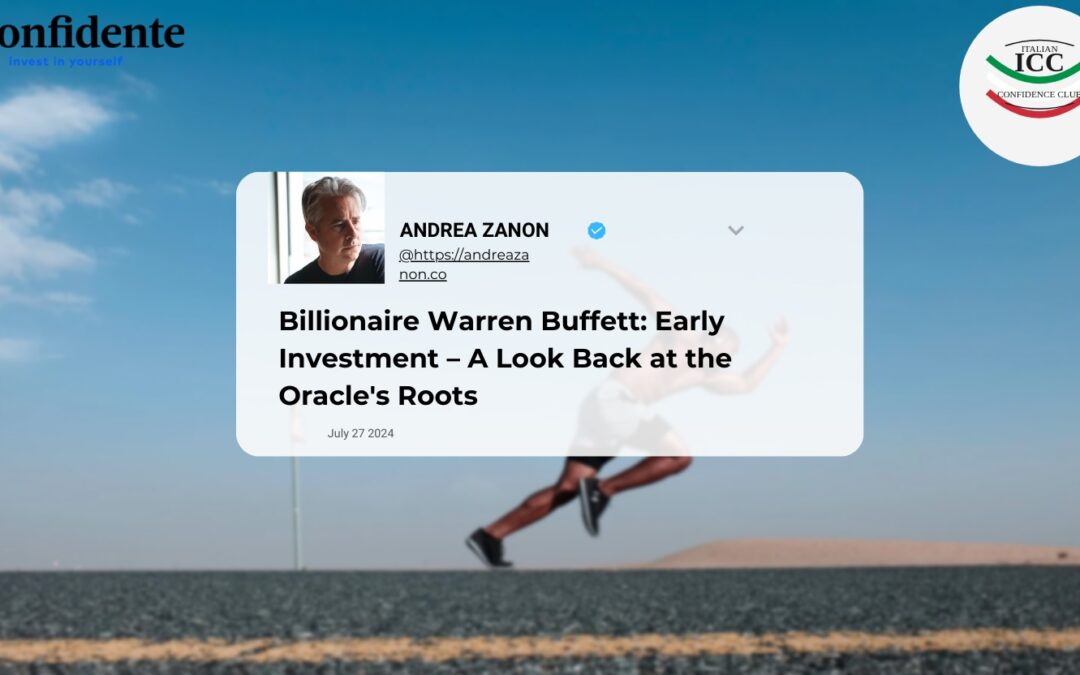Having attended Warren Buffett’s shareholder meetings for over a decade, I’m always eager to research deeper into his investment philosophy. Brett Gardner’s recent book, Buffett: Early Investment, released in November 2024, offers a fascinating preview into the Oracle’s formative years, when Buffet was in his 20s, a period marked by bold bets, valuable lessons, and the gradual emergence of his distinguished investment style. During this time Buffett was able to maintain a low profile snatching incredible investment opportunities, particularly among the small caps category.
This book isn’t just a chronological account; it’s a deep dive into Buffett’s early investment decisions, meticulously examining his thought process and the underlying principles that fueled his success. Gardner doesn’t shy away from the details, including extensive balance sheet and financial data information that allows readers to see how Buffett analyzed each opportunity firsthand. The author detailed material review, and interviews to Buffett and his team allows to show the reader’s Buffett ability to see what most people could not see.
Early Lessons: Concentrated Bets and Value Hunting
One of the most striking aspects of Buffett’s early career was his willingness to make concentrated bets on undervalued companies. He wasn’t afraid to go against the grain, often focusing on businesses that others considered risky bets, companies with significant potential for improvement through active investment and strategic intervention. His early success with Philadelphia and Reading, a struggling coal company transformed into a diversified conglomerate, underscored the power of this approach. This stock became one of the largest positions of Buffett portfolio, and as reported in the book, the stock went up twentyfold due to the involvement of Buffett’s great mentor, Ben Graham.
Key Takeaway: True value often lies hidden within distressed assets, waiting for the right leadership and a strategic turnaround.
Navigating Crises and Embracing Volatility
Buffett’s investment in American Express during the Salad Oil scandal, a major financial racket involving fraudulent warehouse receipts, when De Angelis (the owner of Allied Crude Vegetable Oil) attempted to corner the soybean oil market, demonstrated his uncanny ability to see value where others saw crisis. He recognized the enduring strength of the American Express brand and its ability to weather the storm. Similarly, his investment in Walt Disney, despite the sometimes-unpredictable behavior of Walt Disney himself, highlighted his focus on a company’s underlying value and its long-term potential for growth.
Key Takeaway: Strong brands and businesses with enduring competitive advantages can often overcome short-term challenges.
Learning from Setbacks: The Importance of Adaptability
Buffett: Early Investment doesn’t shy away from Buffett’s early missteps. His investment in Hochschild-Kohn, a Baltimore-based department store chain, serves as a cautionary tale. Buffett overestimated the value of the stores’ physical assets and failed to fully consider the impact of changing consumer behavior and the rise of competition. This experience underscored the importance of thorough market research and a deep understanding of industry dynamics.
Key Takeaway: Even the most experienced investors make mistakes. The key is to learn from these setbacks, adapt your approach, and constantly refine your investment philosophy.
Returning to Omaha: A Foundation for Independence
Buffett’s decision to return to his hometown of Omaha in 1956 was a pivotal moment. Away from the distractions of Wall Street, he was able to cultivate his own unique investment style, free from the pressures of short-term performance. This period laid the foundation for the long-term, patient approach that has become his hallmark.
Key Takeaway: Trust your instincts and don’t be afraid to forge your own path, even if it means going against the conventional wisdom.
A Blueprint for Today’s Investors
Buffett: Early Investment is more than just a historical account; it’s a valuable resource for today’s investors. The book emphasizes the importance of:
- Thorough due diligence: Conducting rigorous financial analysis and understanding the underlying economics of a business.
- Long-term perspective: Focusing on long-term value creation rather than short-term gains.
- Embracing uncertainty: Recognizing that investing inevitably involves risks and learning from setbacks.
- Staying true to your principles: Developing your own investment philosophy and sticking to it through market cycles.
As Buffett himself often advises, patience and discipline are key to successful investing. Buffett: Early Investment provides a valuable glimpse into the journey of one of the greatest investors of all time, offering timeless lessons for anyone seeking to build a strong and enduring investment portfolio.
